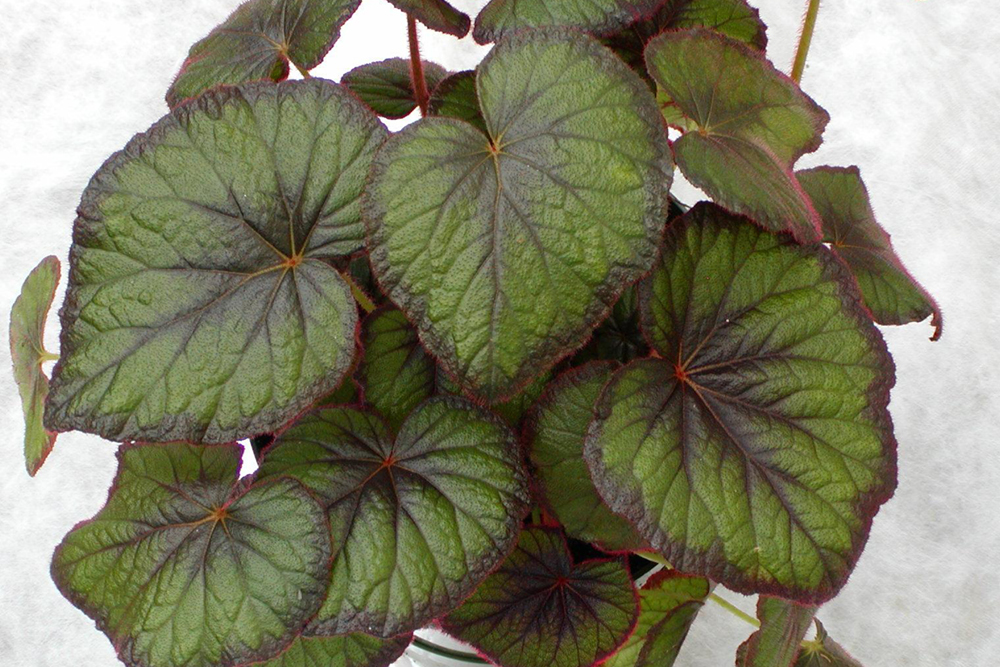Rex begonias are enchanting houseplants that have captured the admiration of plant enthusiasts since their discovery in India in the mid-19th century. Their introduction to Victorian England marked the beginning of their rise in popularity, primarily due to their vibrant and varied foliage, which makes them a favorite among indoor plants. Known for their striking appearance and relatively easy maintenance, they belong to the Begonia genus and fall within the Begonia rex-cultorum group.
Selective Breeding
Breeders have extensively hybridized rex begonias to enhance their impressive range of leaf shapes, colors, and textures. The result is an assortment of plants with a palette including green, red, pink, purple, silver, and metallic tones. Despite the beauty of their leaves, rex begonias also bloom with tiny flowers. However, resplendent foliage often overshadows these blooms and is considered a secondary attribute.
The name “Rex” suggests a regal bearing that fits these plants, who are regarded as the kings of the begonia world. Their royal status comes from their stunning looks and hybrid origins; they result from meticulous selective breeding and are not typically found in the wild.
Cultivation and Care
For optimal growth, rex begonias have specific care requirements. They thrive under bright, indirect light since direct sunlight can be harmful, leading to faded colors or burn spots on their delicate leaves. These plants prefer a consistent moisture level in their soil—enough to stay evenly moist but never waterlogged, as excess water can cause root rot.
A humid environment is another box to tick for the well-being of Rex begonias. They flourish in high humidity conditions, often necessitating additional methods to maintain them, like misting or using a humidity tray, especially in drier climates. The preferred temperature range for these plants is between 65°F and 75°F, and they are particularly sensitive to cold. This makes them ideal indoor plants in regions like New Jersey, where they can be enjoyed all year round with appropriate care.
Propagation
Propagation of rex begonias is straightforward; it can be accomplished through leaf cuttings, with even a leaf section able to generate a new plant. This aspect makes them beautiful, sustainable, and a joy for gardeners who wish to expand their collection.
Toxic to Pets
However, it’s important to note that rex begonias are toxic to pets. If ingested, they can harm dogs and cats, as indicated by the ASPCA. Therefore, pet owners should ensure these plants are out of reach of curious animals.
Rex begonias blend royal elegance, striking diversity, and rewarding cultivation. They are a plant lover’s delight, providing an opportunity to bring the splendor of their foliage into the home.

